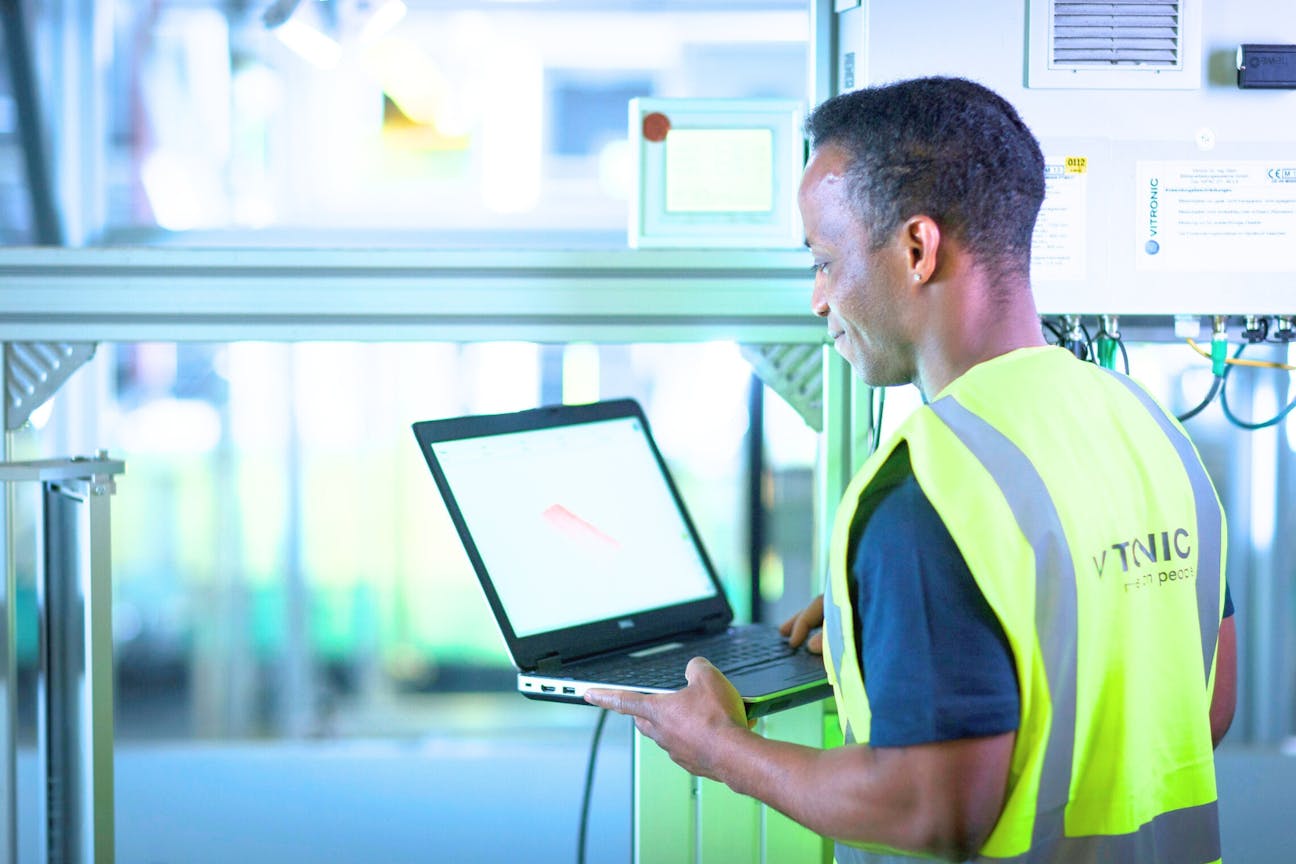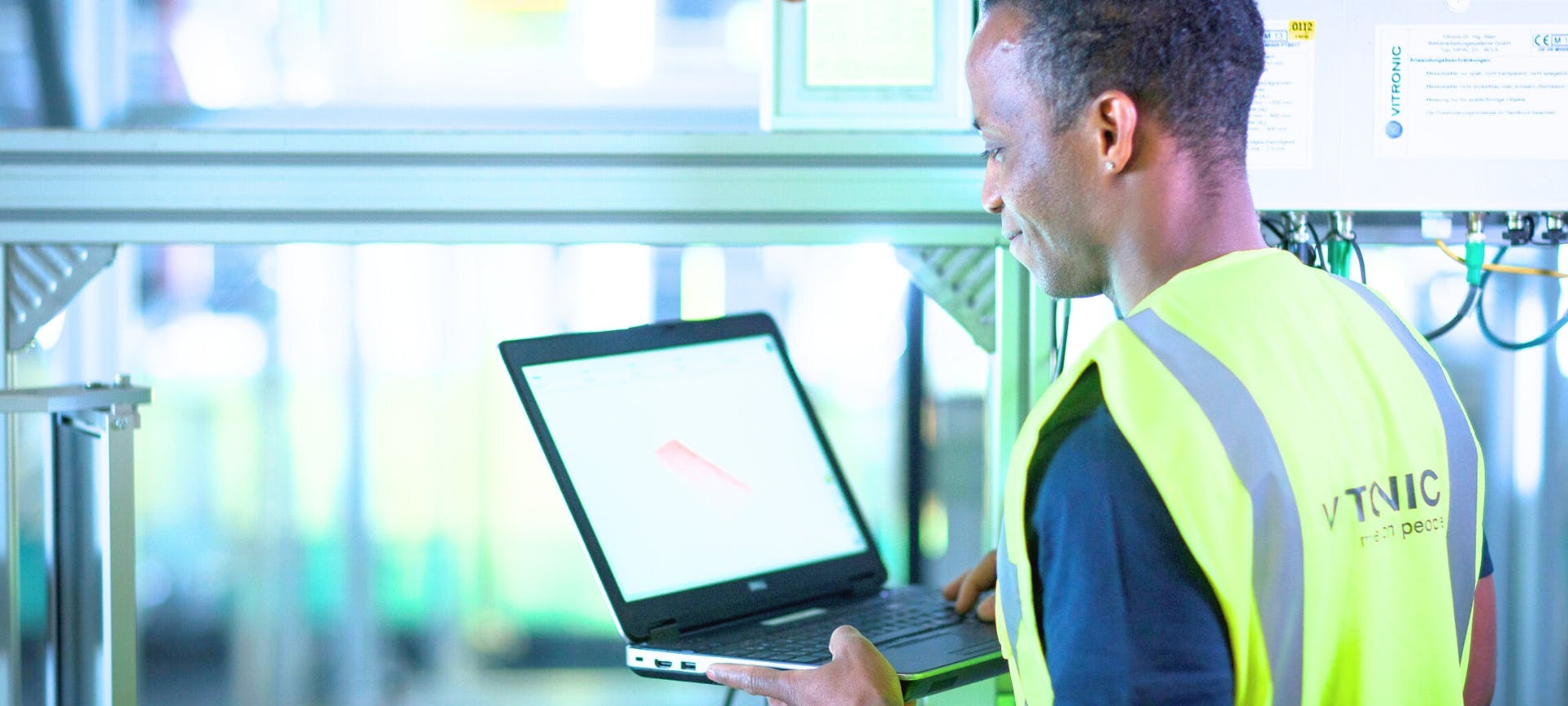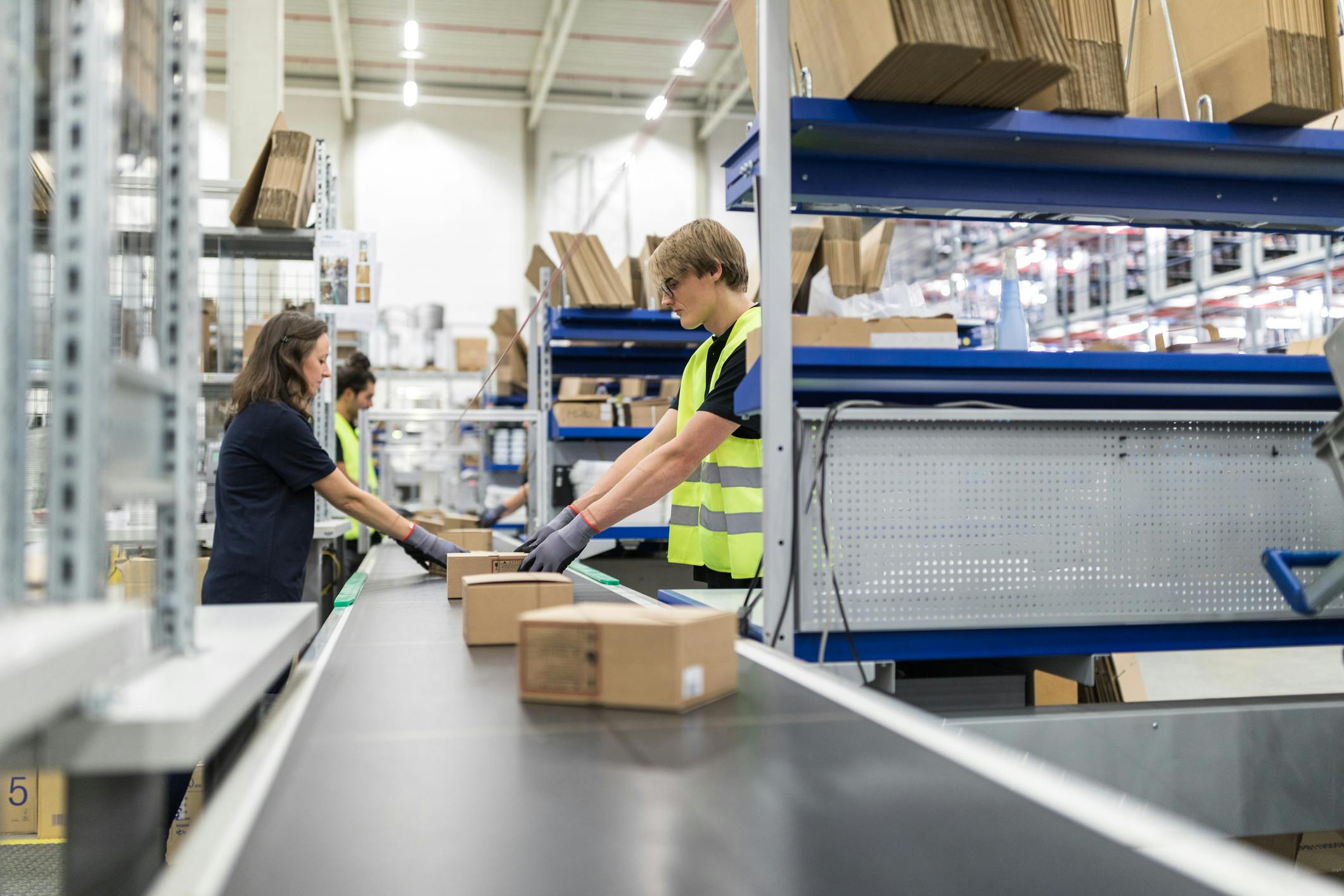

Pioneering Automation: Leading the Way to a Smarter Future
25 years onsite with global technology leadership
Automation is critical for companies facing rising cost pressures and the need to meet growing end customer demands. To enable operations and engineering specialists to identify further areas of optimization, our machine vision experts have been at their side in North America for decades.
Data capturing enables businesses to gain valuable insights into their operations. As end customers increasingly demand high-quality services, businesses must respond with precision and reliability. Data capturing technologies provide the tools needed to meet these expectations, offering a competitive edge through enhanced decision-making, optimized processes, and improved customer satisfaction. In essence, data capture is not just about collecting information—it's about transforming that information into actionable insights that drive business success.

The big advantage of automation technology is not only that processes run faster and more error-free, but also that it creates more data transparency and allows users to know where errors occur and money is wasted.”
In order to meet these rigorous market demands, experience, specialist knowledge, and next-level technologies are required.
Global experience - the basis for process automation
Wayne Pugh has been working in the machine vision industry for 25 years, and today he is Vice President for Partner Management. His journey is a testament to VITRONIC's pioneering spirit. His first visit to a US customer site in 1999 was filled with both challenges and opportunities. The need: A solution for automating a logistics center with an unprecedented throughput of parcels.

Colleagues came over with some experience from a smaller project in Frankfurt, Germany - and a widely unknown barcode reading technology. In North America, we had the opportunity to prove our expertise by scaling up the technology to one of the biggest automation projects still today."
At that time, Wayne and his colleagues spent hours finding the best way of integrating the technology into an existing logistics center, even installing in the snow in the middle of Kentucky. The team came up with a groundbreaking milestone for the logistics industry in 1999:
By automatically recording data and integrating it into connected systems, they ensured seamless documentation. However, a necessary requirement was that all information on the packages, such as barcodes, 2D codes and plain text, was reliably recognized. Therefore, another challenge to overcome was the reliable reading of plain text on address labels and other printed information. Since laser scanners were not capable of this, only a camera-based solution was available.
At this point, the market had reached a stage where more and more handling of shipments was required. At the same time, however, it cost a lot of staff to ensure this. To be able to automate these critical processes together with the customer, close cooperation on-site was essential.

The result was impressive: hundreds of cameras replaced rework stations and provided a blueprint for logistics centers worldwide to adapt the concept.”
This is one of the drivers for VITRONIC experts still today: Working side by side with the customer, our colleagues examine new ways for optimizing process flows, potential savings during shipment processing, as well as data transparency in post-processing.
Development of markets with exchange of industrial expertise
As VITRONIC expanded, more colleagues joined the team in North America and across the globe, and more group companies were established. This growth brought together a diverse pool of knowledge from various markets and project requirements. The collective expertise of the global teams began to address complex challenges in innovative ways –not only in the logistics industries.
In a strategic partnership in Mexico, VITRONIC introduced Weldloop, an innovative digital tool designed to optimize welding processes in the automotive market. This new product development responded to the industry's need for more efficient and precise welding, leveraging linked data to enhance quality control. Weldloop enables data-driven optimization of welding and inspection processes and reduces manual operations. Learning from previous machine vision projects and technologies from other industries, a team of global experts like Wayne transferred the knowledge and designed the new software with customer insights from Mexico.
Another transfer of machine vision expertise applied in traffic technology. Here, an automation of license plate recognition (ALPR) was developed for local petrol cars. The ALPR system allows to efficiently enforce different vehicles at border control, parking areas, and more. A process which manually requires a high level of manpower. The market requirements showed a need to localize and specifiy which was integrated in collaborative adjustments for a local technology.

For us, the key to successful solution and product developments lies in close collaboration with the customers to define their needs, based on local situations. Various examples underline that adapted specifications, designs or other benefits ensure that our customers and partners are provided with the relevant game-changer."
Today, VITRONIC North America, with offices in US, Canada and Mexico, leads all activities in North America for the global technology leader. Together with 1,400 colleagues across the world, the goal is to enable our partners for the best end-customer service quality possible.
Turning expertise into innovation
Drawing on 40 years of global project experience and 25 years of localized expertise in North America, we transform extensive knowledge into groundbreaking innovations that drive customer success across various industries. Our deep understanding of market dynamics and customer needs enables us to deliver tailored solutions that provide more data, greater insights, and enhanced optimization.




